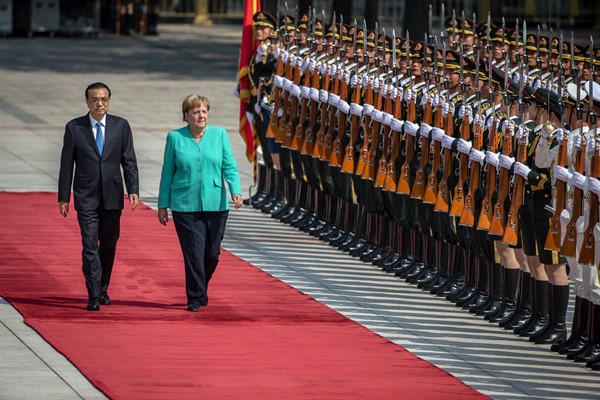The European Union has struggled mightily in recent months to assert itself as a strategically autonomous and relevant actor in response to an increasingly aggressive China. In April, the EU drafted a report critical of Chinese disinformation efforts related to the spread of the novel coronavirus in Europe, but it bowed to pressure from China and removed most of the criticism leveled at Beijing that had been included in the initial draft, which leaked to the press. The subsequent public criticism led the EU’s high representative for foreign affairs, Josep Borrell, to receive a tongue-lashing at a hearing of the European Parliament’s foreign affairs committee.
The headlines from that incident had barely faded before Borrell found himself in the same embarrassing predicament again. Earlier this month, the EU’s ambassador to China and 27 other European envoys in Beijing co-authored an op-ed that appeared in Chinese state media. But the EU later admitted its ambassador had yielded to Beijing’s insistence that a line in the op-ed referring to COVID-19’s origin in China be removed. Afterward, Borrell told reporters that “something like this will not happen again, and it was not the right decision to take.”
EU officials often point out that “unity is a precondition for influence,” but the bloc’s members have found it difficult to stay united on China. After the Permanent Court of Arbitration in The Hague ruled against Beijing in a landmark 2016 decision over maritime territorial disputes in the South China Sea, the EU took three full days to produce a weak statement that avoided direct reference to Beijing’s illegal claims. Hungary and Greece—both of which have received or were seeking substantial foreign investment from China—insisted that the statement should be nothing more than an encouragement of all sides to resolve their disputes by “peaceful means” and uphold international legal norms. So did Croatia, which has its own maritime dispute with fellow EU member Slovenia.

